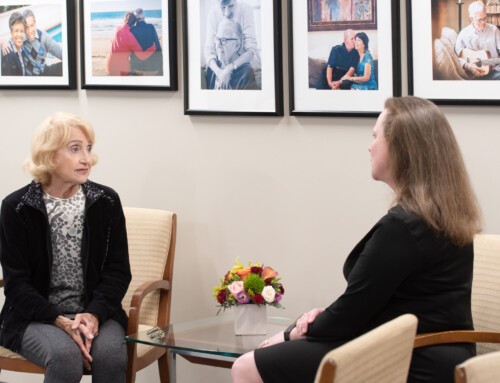
Clinical Care Coach Corner: Written by Crystal Montero
What does in home care in California entail? In home care agencies send caregivers into homes to help with activities of daily living. This includes personal care, bathing, dressing, toileting, meal preparation, light housekeeping, transportation, and companionship. The agency can tailor the services to meet the needs of the individual.
It can feel scary to admit you need help and let a stranger come into your home. It might make you feel uneasy and take time to get used to. The caregiver needs time to learn the person’s routine, habits, interest and dislikes. It will take a couple of visits before they know where everything is and how the person likes their breakfast prepared daily, for example. All of these things take time.
How to select an In Home Care Agency and a caregiver
In California, agencies that provide in home care to the elderly and adults with disabilities must be licensed as “Home Care Organizations” by meeting certain regulations set by the state. These regulations include that all new hires must pass a CA approved background check. The agency must carry liability insurance and workers must be insured and/or bonded to protect families from theft, damages, and workers’ compensation. The agency must provide at least five hours of caregiver training for new hires and an additional five hours annually for all caregivers. (Training in dementia is NOT required). Caregivers who are given a background check are listed on a public registry with their home care aid status.
When hiring from an in home care agency, talk to them first. Inquire about the caregiver’s skills and past experiences. Interview the caregivers before introducing them to the person living with dementia. You may want to prescreen 2-3 caregivers to find a good match. Some questions to ask the caregiver: How do you handle challenging situations? Have you dealt with memory issues or dementia before? Are you familiar with behavioral issues and aware of how to de-escalate a situation? How knowledgeable are you regarding dementia and communication strategies? For example, re-direction and validation. It’s essential to understand the caregiver’s strengths. Some people may not know much about dementia, but can be coached or trained to meet the client’s needs.
Once we have selected a caregiver, what are the next steps?
For folks living with memory loss, accepting help may be tough. Welcoming a stranger into the home might seem daunting. Gradually introduce the caregivers into the routine to ease the transition. Begin with easy tasks before moving to more personal care. Rushing can overwhelm the person being cared for and make both parties uncomfortable. Starting off on the right foot with a caregiver is very important for success. It may take a few tries for the person to feel comfortable with someone new coming into their home. To make it easier, some families introduce the caregivers as a friend, housekeeper, assistant, or student volunteer.
Having a set schedule for caregiver visits is beneficial for everyone! This consistency aids individuals with dementia, lessening confusion, and fear. Before the first meeting, share the person’s preferences with the caregiver. Be transparent with the caregiver, so they know what they are walking into. This fosters rapport and preps them for building a good connection. Some talking points for the caregiver can be past jobs, music, pets, favorite meals/dessert, roles, family, and travel. These topics can feel lighthearted and make the interactions fun.
What if my person has behavioral issues?
When the person living with memory loss has behavioral issues, let the caregiver know. Offer support strategies for managing agitation, paranoia, sundowning, and hallucinations. Certain topics can upset the person, like talking about loss, finances, driving. Informing the caregiver helps avoid triggers and ensures a smooth day. Connect with the care coordinator at the agency to get additional support for the caregiver and the family.
Overview of in home care
In conclusion, caregivers help with activities of daily living. They offer support to the person living with dementia and provide respite for the family. Dementia is progressive and the person’s needs will change over time. As needs shift, caregivers must adjust to help effectively. Deciding when to start in home care can be overwhelming. Take your time. Choosing the right caregiver means considering preferences and personalities. This includes gender, background, skill set, and desired level of interaction. Set clear expectations and tasks ahead of time. Interviewing your caregivers is vital to having a successful relationship. It’s not just about skills, but also personal connection. The bonds caregivers build with the person they care for are beautiful. Some caregivers spend more time with that person than anyone else. It’s important that they get along and understand one another so that everything is as smooth as possible given the situation.
For more information, call us at 858.492.4400 to speak with one of our Clinical Care Coaches (Spanish speakers available). Also check out our free education classes, social activities, support groups, & more.
Our “Clinical Care Coach Corner” series is where our team of dementia experts weigh in on unique topics and provide insight that can help people impacted by dementia.
RECOMMENDED: Selecting the Right Adult Day Care Program




